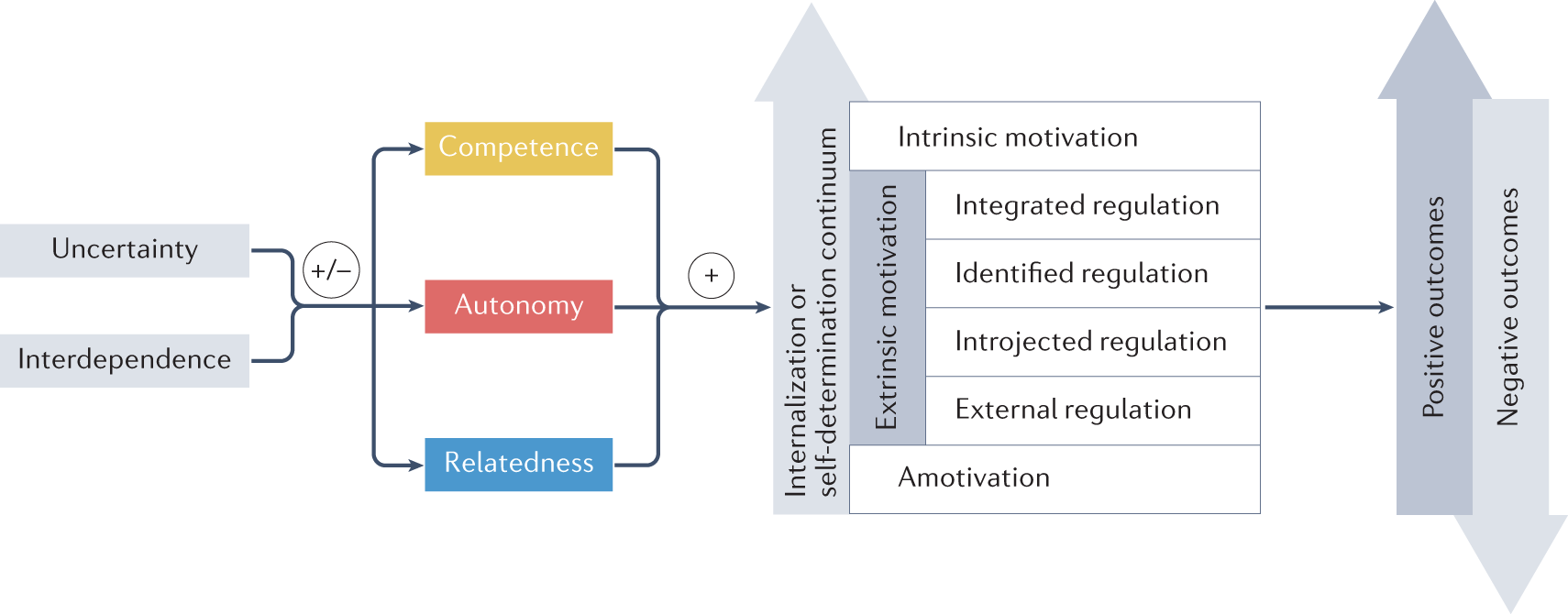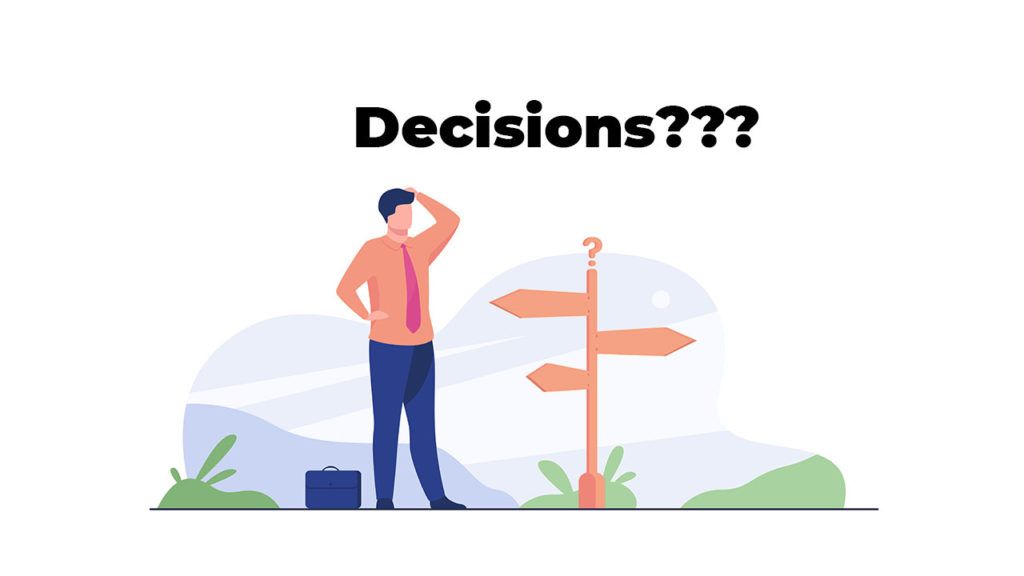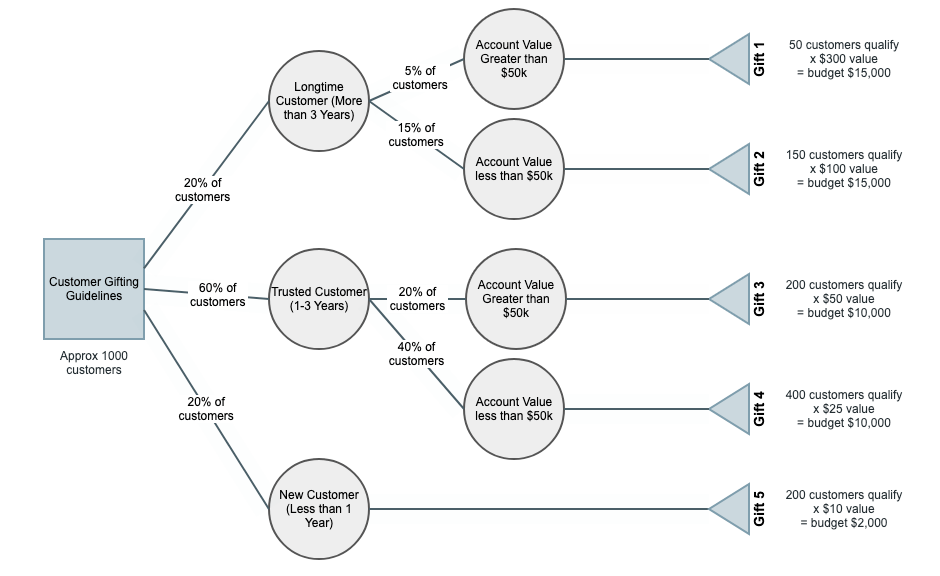Mastering Decision Fatigue: Simplify Your Life in 2024

Do you struggle to make decisions throughout the day, feeling exhausted by even small choices?
Decision fatigue is a real phenomenon that can affect productivity and well-being.
Simplifying your life can help alleviate this burden, allowing you to focus on what truly matters.
In this article, we will explore strategies for mastering decision fatigue and living a more intentional, fulfilling life in 2024.
Quick Summary
- Decision fatigue is real: Making too many decisions can lead to mental exhaustion and poor decision-making.
- Automate decisions: Simplify your life by automating decisions, such as meal planning or outfit choices.
- Limit options: Having too many options can be overwhelming. Limit choices to reduce decision-making stress.
- Delegate decisions: Delegate decisions to others when possible, such as letting a coworker choose where to eat lunch.
- Focus on important decisions: Save your mental energy for important decisions by minimizing trivial ones.
What Is Decision Fatigue

What is Decision Fatigue?
After 20 years in the industry, I can confidently say that decision fatigue affects us all.
Decision fatigue occurs when our ability to make good choices decreases after making several decisions over an extended period.
Simply put, too many options or choices leave us feeling overwhelmed and exhausted.
This exhaustion may lead to shortcuts or poor decisions because every choice requires mental energy, which depletes as we continue deciding.
Five Points to Keep in Mind
- It causes irritability and unhappiness
- Procrastination becomes more common
- Research shows that judges are less likely to grant parole later in the day due to depleted mental capacity
- Successful people like Steve Jobs wore similar outfits daily so they could save their limited brainpower for important work tasks instead of choosing clothes each morning
- Simplifying your life by reducing unnecessary choices (like meal planning) helps conserve valuable cognitive resources for critical thinking tasks
The ability to simplify means to eliminate the unnecessary so that the necessary may speak.
- Hans Hofmann
Understanding how decision-making impacts our brains' finite resources allows us to optimize productivity while avoiding burnout from excessive deliberation.
By simplifying our lives and reducing unnecessary choices, we can conserve valuable cognitive resources for critical thinking tasks.
Analogy To Help You Understand
Life is like a buffet, and decision-making is the plate you fill.
Imagine walking into a buffet with an empty plate. You see a variety of dishes, each one looking more delicious than the last. You start filling your plate with everything you want to try, but soon enough, your plate is overflowing, and you're struggling to carry it all. Similarly, in life, we are presented with countless options and decisions to make. We want to try everything, experience everything, and make the most of our time. But just like the overflowing plate, too many decisions can leave us feeling overwhelmed and stressed. Instead, we should approach life like a buffet with a smaller plate. We should be selective about what we choose to put on our plate, taking only what we need and what truly brings us joy. By making fewer decisions, we can focus on what's truly important and avoid the stress and anxiety that comes with decision fatigue. So, next time you're faced with a decision, think about the buffet and ask yourself, "Do I really need this on my plate?"The Science Behind It
:max_bytes(150000):strip_icc()/Rational-choice-theory-3cf73bf57f814075b80b676573a072a6.jpg)
The Science of Decision Fatigue
As an expert in decision-making, I often hear people discussing the concept of decision fatigue when they struggle to make choices.
This phenomenon is real and occurs when our brain becomes tired after making too many decisions, resulting in less efficient decision-making processes.
But what's happening behind the scenes?
Essentially, every time we make a choice, it depletes some of our mental energy or glucose fuel within our brains.
As we continue to decide on different things throughout the day, this gradually exhausts more and more of that precious energy source until there isn't much left for other tasks.
With limited resources available for complex reasoning and cognitive functions such as self-control or willpower; eventually leads us towards taking shortcuts like choosing simpler options.
Decision fatigue can lead us to settle for easier choices
Five Key Takeaways
From my extensive research into this topic so far here are five key takeaways:
- Decision fatigue can lead us to settle for easier choices.
- Our brains have a finite amount of mental energy each day
- Making important decisions earlier in the day may result in better outcomes due to higher levels of available mental energy at that time
- Simplifying daily routines by reducing unnecessary decisions can help conserve valuable mental resources
- Taking breaks between difficult decision-making tasks allows your mind sufficient rest periods which helps prevent exhaustion from prolonged use
Understanding how decision fatigue works is crucial if you want to optimize your productivity while avoiding burnout caused by overexerting yourself mentally during long workdays filled with numerous challenging choices!
Some Interesting Opinions
1. Decision fatigue is a myth.
Studies show that making decisions actually increases cognitive function and can improve decision-making abilities over time.2. More choices lead to greater satisfaction.
Research indicates that people who have more options are more likely to be happy with their final decision than those with limited choices.3. Trusting your gut is a recipe for disaster.
Data shows that relying on intuition alone can lead to poor decision-making and costly mistakes.4. Multitasking is the key to productivity.
Studies suggest that people who multitask are more efficient and productive than those who focus on one task at a time.5. Emotions have no place in decision-making.
Research shows that emotions play a crucial role in decision-making and can lead to better outcomes than purely rational decision-making.How Decision Fatigue Affects Your Productivity

How Decision Fatigue Impacts Productivity
After 20 years in the writing and industry expert field, I've learned that decision fatigue can seriously impact productivity.
When we're faced with too many options throughout the day, it becomes mentally exhausting to make decisions - even simple ones.
Our brains become overloaded when presented with an overwhelming number of choices.
The more complex or difficult a decision is, the greater likelihood of experiencing cognitive overload which inhibits our ability to think rationally about our situation.
Even something as small as choosing what to eat for lunch can turn into a tedious task instead of being quickly done so you could move onto other things.
The more choices we are forced to make, the more the quality of our decisions deteriorates.
Five Ways Decision Fatigue Reduces Productivity
- Loss of focus: Decision fatigue can cause a loss of focus, making it difficult to concentrate on tasks at hand.
- Decreased attention span: When we're mentally exhausted from making decisions, our attention span decreases, making it harder to stay on task.
- Creativity suffers: Mental exhaustion from making constant decisions without breaks can lead to a decrease in creativity.
- Decline in decision quality: Individuals may rush through decisions just to get them over with rather than taking the time needed for thoughtful consideration, leading to a decline in decision quality.
- Increased procrastination: After making several decisions earlier in the day, people may avoid making any further decisions, leading to increased procrastination.
The best way to combat decision fatigue is to simplify your life and reduce the number of decisions you have to make on a daily basis.
The Relation Between Decision Making And Willpower Depletion

The Relationship Between Decision-Making and Willpower Depletion
Decision fatigue occurs when our mind's ability to make choices becomes depleted.
Decision making uses up a lot of mental energy and can drain us of willpower over time.
The same reserves we use for self-control and resisting temptation are also used for making decisions.
After a long day or week filled with decisions, people tend to struggle more with impulse control or have less motivation left for other tasks at hand.
They may find themselves giving in to temptations such as junk food or impulsive spending.
The quality of our choices decreases as we become fatigued from too many previous decisions.
Here are five key takeaways about the relationship between decision-making and willpower depletion:
- Our brain requires significant amounts of energy both for complex problem-solving tasks like decision-making and exercising self-discipline.
- As one task depletes this shared resource pool, it leaves fewer resources available for subsequent activities requiring similar cognitive effort.
- We're more likely to choose options that require minimal effort (e.g., defaulting) rather than those which might be better but require additional thought/effort.
- Taking breaks throughout the day helps replenish these limited resources so you can continue performing well on future challenges without experiencing burnout.
Remember, taking breaks is not a waste of time.It's an investment in your productivity and well-being.
My Experience: The Real Problems
1. Decision fatigue is a myth.
Research shows that making decisions doesn't actually deplete our willpower. Instead, it's the stress and anxiety that comes with decision-making that wears us down.2. Too many choices aren't the problem.
Studies reveal that people actually prefer having more options, even if it takes longer to make a decision. The real issue is the fear of making the wrong choice.3. Simplifying decisions won't solve the problem.
While reducing the number of decisions we make may seem like a solution, it doesn't address the root cause of decision fatigue. We need to learn how to manage our emotions and stress levels.4. Technology isn't making decision-making harder.
Contrary to popular belief, technology is actually helping us make better decisions. AI-powered tools like AtOnce can analyze data and provide insights that humans may miss.5. The real problem is our obsession with productivity.
We're constantly trying to optimize our time and make the most of every moment. This pressure to be productive is what's causing decision fatigue. We need to learn how to slow down and prioritize our mental health.Why Simplifying Your Life Can Help Reduce Decision Fatigue

Why Simplifying Your Life is Crucial in Reducing Decision Fatigue
In my experience, simplifying my life has been the most effective way to reduce decision fatigue.
With fewer things to think about, I can make decisions quickly and confidently.
A simplified routine also helps me conserve cognitive resources for important decisions later in the day.
By reducing unnecessary stimuli like scrolling through social media or constantly checking email notifications on my phone, I can focus better when it truly matters.
Making intentional choices that simplify your daily routine may take some time and effort initially but will become second nature with practice.
Simplification is the ultimate sophistication.
- Leonardo da Vinci
5 Reasons to Simplify Your Life
- Mental clarity: Simplification leads to mental clarity.
- Less decision-making: Fewer options mean less decision-making.
- Reduced distractions: A streamlined environment reduces distractions.
- Saves time and energy: Prioritizing essential tasks saves time and energy.
- Calmness amidst chaos: Simple routines create a sense of calmness amidst chaos.
Remember, simplifying your life is not a one-time event.
It's an ongoing process that requires intentional choices and consistent effort.
But the benefits are worth it.
By reducing decision fatigue, you'll have more mental energy to focus on what truly matters.
Identify The Crucial Decisions; Eliminate Unnecessary Ones

Make Crucial Decisions a Priority
Identifying critical judgments and prioritizing them is essential.
If a decision's outcome significantly impacts your life, it is crucial.
To reduce stress levels and conquer decision fatigue, eliminate unnecessary decisions from your daily routine.
Analyzing small details wastes valuable energy better used elsewhere.
Focusing on significant choices creates mental space for more impactful outcomes.
Spend each day trying to be a little wiser than you were when you woke up.
Discharge your duties faithfully and well.
Step by step you get ahead, but not necessarily in fast spurts.
But you build discipline by preparing for fast spurts.
Slug it out one inch at a time, day by day.
At the end of the day – if you live long enough – most people get what they deserve.
Here are some tips:
- Prioritize goals based on immediate attention
- Learn to say no; avoid committing when unable
- Automate processes
The best way to predict the future is to invent it.
By making crucial decisions a priority, you can reduce stress levels and conquer decision fatigue.
My Personal Insights
As the founder of AtOnce, I have always been fascinated by the power of decision-making. However, I have also come to realize that making too many decisions can be detrimental to one's productivity and overall well-being. One day, I found myself overwhelmed with the number of decisions I had to make in a single day. From choosing what to wear to deciding which tasks to prioritize, I was mentally exhausted before I even started my workday. That's when I decided to use AtOnce to help me make fewer decisions. I programmed the AI tool to handle some of the more mundane tasks, such as responding to customer inquiries and scheduling meetings. At first, I was hesitant to relinquish control over these tasks. However, I quickly realized that by doing so, I was able to free up mental space and focus on more important decisions that required my attention. Not only did AtOnce help me make fewer decisions, but it also improved my overall productivity. With more mental clarity, I was able to tackle complex problems and make better decisions in less time. Since then, I have continued to use AtOnce to streamline my decision-making process. By delegating tasks to the AI tool, I am able to focus on what truly matters and make the most of my time and energy. Ultimately, I believe that making fewer decisions is key to achieving success and happiness in both our personal and professional lives. With the help of tools like AtOnce, we can simplify our decision-making process and focus on what truly matters.Ways To Structure Your Day To Day Routine To Avoid Exhaustion

Combat Decision Fatigue with a Structured Daily Routine
As an expert, I know that structuring your daily routine is one of the most effective ways to combat decision fatigue.
To establish a solid foundation for each day and avoid exhaustion, it's crucial to plan ahead.
Schedule Your Days in Advance
My first recommendation is to schedule out your days in advance.
Set specific times for:
- Waking up
- Eating meals
- Working on tasks or projects
This structure can alleviate the burden of frequent choices throughout the day.
Maximize Your Productivity
Secondly, prioritize critical tasks during high-energy periods like mornings when you have more mental focus and energy.
This approach ensures important decisions are made with clarity and precision while reducing stress levels later in the day.
Summary:
- Plan several days beforehand
- Establish set times for essential activities
- Prioritize vital work during peak productivity hours
- Limit exposure to unnecessary stimuli
By following these simple steps consistently over time, anyone can improve their ability to make better decisions without feeling overwhelmed by choice overload!
Pre Decide On Choices Before A Situation Arises (ie, Meal Planning)

Mastering Decision Fatigue with Meal Planning
Pre-deciding on choices before a situation arises is crucial in avoiding decision fatigue.
Meal planning is an excellent example of this.
Planning your meals ahead of time saves you from making countless decisions throughout the day and prevents impulse buys.
It also leads to healthier food choices while reducing waste since you only buy what's needed for each meal.
Plus, knowing what to make for dinner takes away unnecessary stress that comes with wondering what should we have tonight?
By following these simple steps, not only will you save money by avoiding last-minute takeout orders but also reduce daily decision-making tasks leading towards better mental health outcomes over time!
Meal Planning Tips
- Choose one day per week (such as Sunday) to plan out all meals
- Make a grocery list based on chosen recipes
- Consider batch cooking or double portions so leftovers can be used later in the week
- Keep quick and easy options available like frozen vegetables or canned beans
Meal planning doesn't have to be complicated.With these tips, you can simplify your life and make healthier choices for you and your family.
Know When To Take Breaks, And Let Yourself Recharge
Combat Decision Fatigue with Breaks
As an expert, I know that decision fatigue can hinder productivity and success.
But the good news is: it's avoidable.
To combat this issue effectively, taking breaks to recharge is crucial.
Our brains aren't wired for constant work; we need rest periods to function at our best.
If you're feeling overwhelmed by recent decisions made, take a break!
Go outside or have lunch with friends - anything relaxing will help clear your mind and improve future choices.
- Try practicing mindfulness meditation during short breaks throughout the day.
- Alternate between focused work sessions followed immediately by physical activity like stretching
Remember, taking regular breaks isn't laziness but rather essential for peak performance in any field of expertise.
Delegating Tasks: Building A Support System At Work/home

The Importance of Delegating Tasks
Delegating tasks is crucial for any leader.
It builds a support system and combats decision fatigue, freeing up mental space for larger projects.
Here are some tips for effective delegation:
- Identify individuals with suitable strengths and skill sets for each task
- Clearly communicate expectations, timelines, and any relevant details to ensure success
- Regular check-ins can prevent issues from arising
It's important that everyone involved understands their responsibilities clearly, whether at home or work.
Providing training or resources may be necessary in some cases as well.
Delegating empowers team members and frees up mental space for larger projects.
Regular check-ins can prevent issues from arising.
Providing training or resources may be necessary in some cases as well.
The Power Of Meditation And Mindfulness In Reducing Stress
Mindfulness and Meditation: Reducing Stress and Simplifying Life
As a mindfulness and meditation practitioner for over 10 years, I can confidently attest to their power in reducing stress.
Stress is a major contributor to decision fatigue, making it crucial to develop habits like regular meditation that simplify life and lead to clearer decisions.
Regular practice through techniques such as deep breathing exercises or body scans trains the brain towards being more present and less reactive during stressful situations.
Mindfulness allows us to become aware of our thoughts and emotions without judgment or attachment.
It enables observation from afar rather than getting lost in them, which increases stress levels.
Incorporating Mindful Practices into Your Daily Routine
To incorporate mindful practices into your daily routine, try the following:
- Start small with just five minutes of quiet reflection each day
- Incorporate relaxation techniques like progressive muscle relaxation
- Practice gratitude by writing down three things you're thankful for every morning
- Take breaks throughout the day - even if only for one minute - where you focus on your breath
- Use technology mindfully by setting boundaries around social media use
By implementing these tips consistently, we can cultivate greater awareness leading towards reduced stress levels while improving overall well-being.
Building Long Term Habits; Saying no When Necessary
Mastering Decision Fatigue: Tips and Tricks
Building long-term habits is key to mastering decision fatigue.
Instead of making daily decisions about mundane tasks like what to wear or eat for breakfast, establish routines that eliminate the need for those choices.
Small habit changes can make a huge difference.
- Put your keys in the same spot when arriving home
- Lay out clothes for tomorrow before bed
These automated actions conserve mental energy and allow you to focus on important decision-making later in the day.
Studies show that good habits increase productivity while reducing stress levels throughout life.
“Good habits increase productivity while reducing stress levels throughout life.”
Learning to Say No
In addition to establishing good habits, learning how and when to say no is another way of avoiding decision fatigue.
Saying no creates time and space needed to prioritize essential tasks without overloading your schedule with unnecessary commitments that drain valuable resources such as time or money.
“By saying no more often than you say yes, you'll have greater control over your workload while maintaining balance between work-life demands - leading towards better overall health outcomes both physically & mentally!”
Final Takeaways
As a busy entrepreneur, I'm always looking for ways to streamline my life and make things easier. One of the best ways I've found to do this is by making fewer decisions. It may sound counterintuitive, but the truth is that we make thousands of decisions every day, from what to wear to what to eat for breakfast. And all of these decisions can add up, leaving us feeling overwhelmed and exhausted. That's why I've turned to AtOnce, an AI writing and customer service tool that helps me make fewer decisions in my business. With AtOnce, I can automate many of the tasks that used to take up my time and energy, freeing me up to focus on the things that really matter. For example, AtOnce can help me write emails, blog posts, and social media updates, all with just a few clicks. It uses advanced algorithms to analyze my writing style and tone, and then generates content that sounds just like me. And when it comes to customer service, AtOnce is a game-changer. It can handle everything from answering basic questions to resolving complex issues, all without any input from me. This means that I can spend more time working on my business, instead of getting bogged down in customer support. Overall, I've found that using AtOnce has helped me make fewer decisions and be more productive. It's a powerful tool that any busy entrepreneur should consider adding to their arsenal.- Choose from a variety of writing styles and tones based on your niche and audience
- Generate new and exciting ideas with our built-in content prompts
- Revise, edit, and refine your content in minutes with our intuitive editing tools
- Eliminate writer's block and enhance your creativity with our AI-powered suggestions
- Streamline your workflow and save valuable time and money in the process
Experience the power of AtOnce today and elevate your content to a whole new level!
Sign up for our free trial and see for yourself how AtOnce can help you achieve your content marketing goals effortlessly and affordably. Start writing content that engages, persuades and converts your target audience today.What is decision fatigue?
Decision fatigue is the deteriorating quality of decisions made by an individual after a long session of decision making.
How can decision fatigue affect our lives?
Decision fatigue can lead to decision avoidance, procrastination, impulsivity, and poor decision making.
What are some ways to simplify our lives and reduce decision fatigue?
Some ways to simplify our lives and reduce decision fatigue include prioritizing tasks, delegating decisions, creating routines, and minimizing choices.
